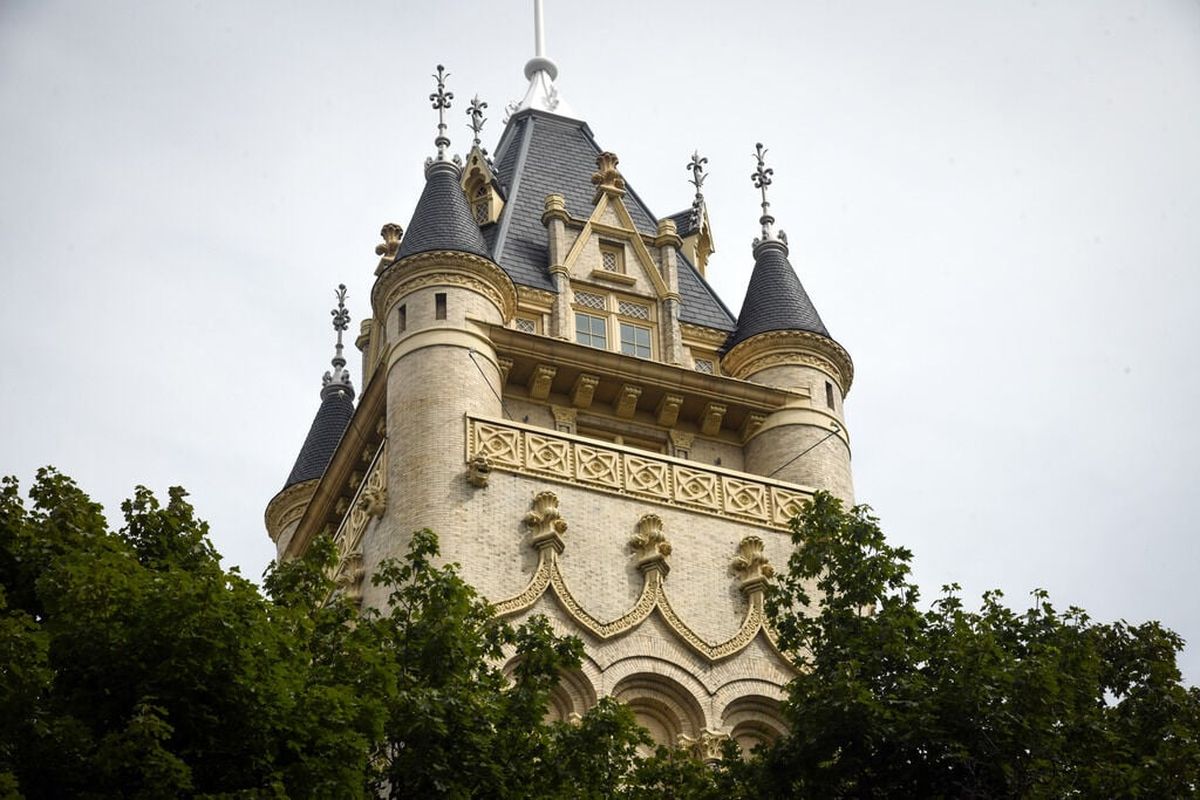Spokane County Commission asks voters for 30-year sales tax for new jail and undetermined criminal justice programs

Spokane County voters will decide if they want to tax themselves to pay for a new jail.
Spokane County commissioners voted Tuesday to put a 0.2% sales tax measure on the Nov. 7 general election ballot. All revenues from the tax increase would go toward criminal justice, public safety and behavioral health purposes.
County officials estimate the 30-year tax boost would generate well over $1 billion. The tax would increase the sales tax rate in the city of Spokane to 9.2% and 9.1% in Spokane Valley.
Commissioners Josh Kerns and Al French voted in favor of the decision. Commissioner Mary Kuney was out of town on county business. The decision to place the matter before voters was made less than a month before two new members will join the commission and several months before the deadline to add tax measures to the November ballot. County officials acknowledge they haven’t determined details about how they would spend the money.
“We have kicked this political football around for over a decade,” Kerns said. “It’s time for the voters’ voices to be heard.”
Spokane County’s two new commissioners, who take office in January, said they don’t believe the county should have put the question on the ballot before having a clearer picture of how the money will be spent.
The sales tax would generate enough revenue for the county to build a new jail, which could cost more than $300 million, but exactly how much it would raise isn’t clear.
According to staff estimates, a 0.2% sales tax would collect about $30 million in 2024. Over 12 years, the tax would bring in roughly $450 million.
The county wouldn’t get all of the money the tax brings in. Per state law, the county would get 60% and the remaining 40% would be distributed to cities and towns within the county based on their populations.
French and Kerns stressed the tax wouldn’t exclusively pay for a jail.
“It’s much broader than that,” French said. “It’s about fixing our criminal justice system.”
Local politicians have debated the pros and cons of a new jail for over a decade. They agree on the jail’s shortcomings: It’s overcrowded and unsafe.
But politicians disagree on how to move forward.
Many conservatives argue building a jail is the best approach. Adding more cells will allow law enforcement to keep criminals off the streets, improve inmate safety and reduce operational costs long-term, they say.
“We have to stop the revolving door of folks that are coming into the criminal justice system,” Kerns said. “We need to have a safe community. This is what is going to help us get there.”
Many progressives oppose building a new jail. Instead of spending millions of dollars on a facility, they argue taxpayer dollars would be better spent on efforts that reduce recidivism and direct defendants to resources, such as drug addiction and mental health treatment.
City Council President Breean Beggs, an attorney, said building a new jail is a waste of taxpayer money that won’t improve public safety.
“It won’t reduce crime,” he said. “I think that is the wrong choice. That’s using the data and psychology of 100 years ago, and it has not been working locally.”
Kerns and French emphasized the new jail would have room for classes to help inmates receive GEDs, provide access to therapy and more.
Chris Jordan and Amber Waldref, who in January will represent districts in the city of Spokane and become the lone Democrats on the new five-member commission, said on the campaign trail they oppose a new jail.
Jordan and Waldref said the commissioners’ decision Tuesday was made without soliciting enough community feedback.
“I am concerned about this tax increase proposal coming at a time when families in Spokane are already feeling the pinch,” Jordan said. “My view is that raising taxes to build a new jail should be a last resort after efforts to target root causes of crime are exhausted, as well as other funding alternatives.”
Both Jordan and Waldref said they have a long list of questions about the proposal.
“We have to do our homework as elected officials and I don’t think this proposal is ready in any shape or form,” Waldref said. “Why make a hasty decision to put it on the ballot for next November?”